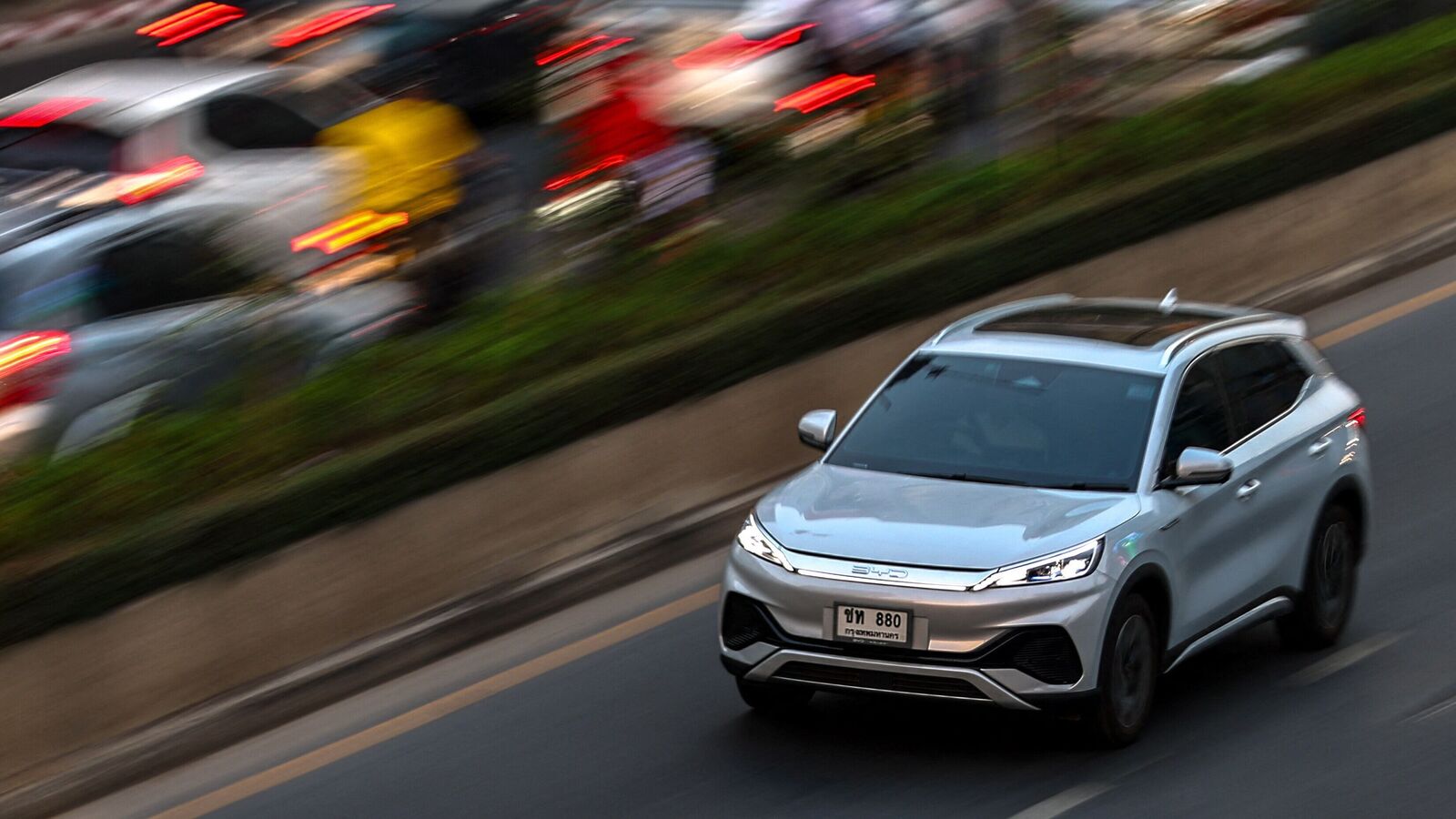- Any amount of tariff hike would mean higher prices for consumers as European EV production is significantly costlier.
European Union tariffs on Chinese electric vehicles would likely cost Beijing nearly $4 billion in trade with the bloc, according to a new analysis.
The number of Chinese EVs imported to the EU would drop by a quarter — some 125,000 vehicles — if Brussels were to impose a 20 per cent import tariff, Germany’s Kiel Institute for the World Economy said Friday, citing its new study. Sales of locally produced vehicles would likely increase by almost the same amount.
The threat of a widening trade conflict is heightening tensions with China ahead of the EU’s tariff decision. Under President Ursula von der Leyen, the European Commission has opened a barrage of trade probes against Beijing on the grounds of anti-dumping and unfair subsidies, especially in the clean-technology sector. The bloc must inform Chinese exporters whether it intends to impose tariffs — and how high they would be — on their EVs by early June, and they could go into effect a month later.
Also Read : VW says cost cuts not tariffs will protect Europe from Chinese EVs.
“I don’t want to be brutally confronted a second time with others taking advantage of our naivety,” German Foreign Minister Annalena Baerbock said in an interview with the Handelsblatt newspaper, referring to the country’s previous dependence on Russian energy. “We have to protect our interests.”
The study does not take into account potential Chinese retaliatory measures, which should be expected, the institute said. It’s also unclear what the tariff level would be should the EU decide to impose penalties. Beijing has signalled that it is ready to unleash tariffs as high as 25 per cent on imported cars with large engines, hitting the likes of Mercedes-Benz Group AG and BMW AG the hardest.
Consumers are likely to face higher prices for EVs as a result of any tariffs, as European production is significantly more expensive, the institute said. BYD Co., which plans to set up production facilities in Europe, has said it will bring its $10,000 Seagull hatchback to the region next year.
Higher prices could hamper the shift to EVs in the EU, with the bloc set to virtually end sales of new combustion-engine cars by 2035. That requires low-income citizens, particularly in southern and eastern member states, to be able to afford battery-powered alternatives.
“It is by no means a foregone conclusion that European car manufacturers will fill the gap,” said Julian Hinz, a trade researcher at the Kiel Institute. “Chinese manufacturers such as BYD could also meet local demand with new plants in Europe.”
First Published Date: 04 Jun 2024, 06:56 AM IST

